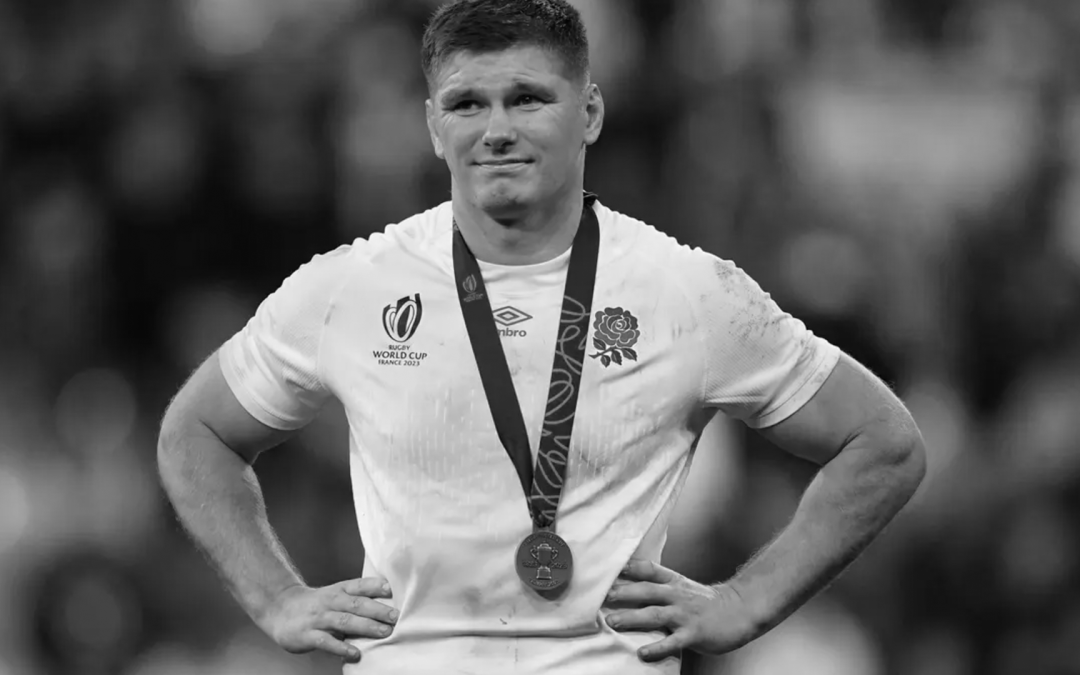In a surprising turn of events, England’s rugby captain, Owen Farrell, has announced his decision to take a break from international rugby, focusing on his mental wellbeing and that of his family. This unexpected move raises questions about the team’s leadership and the challenges faced by elite athletes in the demanding world of professional sports.
A Pivotal Decision:
Farrell, who recently led England to a commendable third-place finish in the World Cup, has chosen to step away from the upcoming Six Nations, leaving a leadership vacuum that coach Steve Borthwick must now address. The absence of a set timeframe for Farrell’s return adds an element of uncertainty to England’s future campaigns.
Club Commitment Continues:
Despite his international hiatus, Farrell will maintain his role as captain for Saracens during this period. This strategic decision allows him to stay actively involved in the sport while managing the intense pressures associated with international competition.
Leadership Void in England Squad:
With Farrell unavailable, Borthwick faces the challenge of selecting a new captain for the upcoming Six Nations. The retirement of Courtney Lawes from international rugby further complicates matters, making Ellis Genge a frontrunner for the captaincy. Meanwhile, George Ford emerges as a likely candidate for the coveted No. 10 jersey.
Career Milestones and Criticisms:
Farrell’s decision follows his remarkable achievement as England’s top points scorer, surpassing the legendary Jonny Wilkinson. However, the World Cup brought renewed criticism for the 32-year-old, with boos from the audience and a red card incident during a warm-up match against Wales sparking controversy. The negative attention prompted Farrell’s father, Andy, to denounce the surrounding “disgusting circus.”
Borthwick’s Supportive Stance:
Coach Steve Borthwick expressed full support for Farrell’s decision, acknowledging the immense challenges faced by elite athletes. Borthwick emphasized Farrell’s integral role in the England setup for over a decade and vowed to provide the necessary support during this challenging period. The coach had previously defended Farrell amid the controversy surrounding the red card incident.
Impact on Team Evolution:
While Borthwick backs Farrell’s decision, the absence of the captain will undoubtedly impact the coach’s plans for the team’s evolution. With key players like Lawes, Ben Youngs, and Jonny May already retired from international duty, Borthwick faces a shortage of experienced leaders. Genge, previously a vice-captain, now stands as a potential future captain, as suggested by Lawes.
Dallaglio’s Perspective:
Former England captain Lawrence Dallaglio took to social media to express his thoughts on Farrell’s situation. Dallaglio, recognizing Farrell as a pivotal player and potential great, condemned the abuse the captain receives. He advocated for player sabbaticals, considering the strenuous demands of the modern game.
Conclusion:
Owen Farrell’s decision to prioritize mental health over international rugby highlights the personal toll of elite sports. As England prepares for the Six Nations without its longstanding captain, the team faces a period of transition and adaptation. The support from both coach Borthwick and fellow players reflects a growing awareness of the mental health challenges within the realm of professional sports, prompting discussions on the need for more comprehensive support systems for athletes.

Erin Balsa is a highly skilled and knowledgeable health journalist with a passion for educating the public on important health and wellness topics. With extensive experience in both traditional and digital media, Erin has established herself as a trusted voice in the field.

